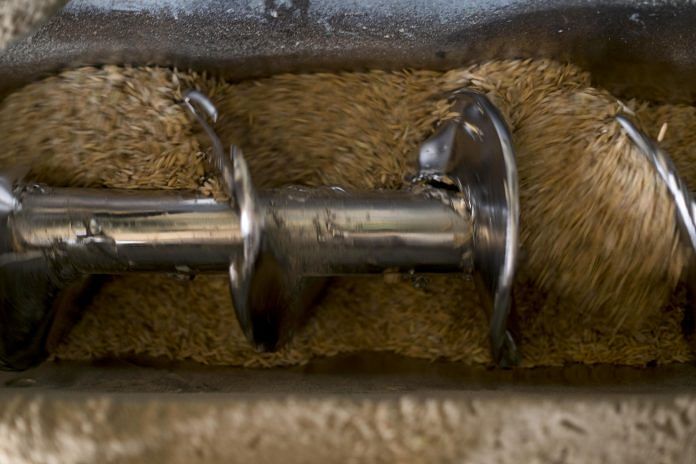Dubai: The United Arab Emirates doesn’t spring to mind as an obvious place to farm rice, but the coronavirus is prodding the arid nation to explore new ways of feeding itself.
In a pilot project with South Korea’s Rural Development Administration, the UAE last month harvested around 1,700 kilograms of rice in the emirate of Sharjah. The partners planted Asemi rice, a popular variety in East Asia, because it can withstand heat and salty soils. An underground irrigation system that drips water instead of spraying it was crucial to the project’s success.
“This pandemic has sent a strong message that diversification always has to be a key element of our future plans,” Thani bin Ahmed Al Zeyoudi, the UAE’s minister of climate change and environment, said in an interview. The virus “is pushing us to come up with more innovative ways to grow faster than the rest of the world.”
The UAE imports as much as 90% of its food — the 1,700 kilograms in the pilot project is just a fraction of what it needs — and the virus has proven a stern test for the country’s overseas supply chains. Although the UAE has so far avoided any serious disruptions in food imports, the pandemic is acting as a catalyst for the nation’s efforts to produce more of what it eats.
“We have to target the crops that are in high demand locally,” Al Zeyoudi said. “This is one of the things we’ve noticed during the pandemic.”
Next up could be projects for coffee and wheat, he said.
Desert Crops
Cultivating food crops on a large scale in a desert environment may sound quixotic. Rice, wheat and coffee could drain scarce water resources, and summer temperatures in excess of 50 degrees Celsius (122 degrees Fahrenheit) severely limit the seasons for open-field agriculture in the UAE.
Climate change will only intensify the challenge.
“Local production is becoming a priority in the whole of the UAE,” Al Zeyoudi said. “The next step is going to be that we reach the right level of water consumption.”
The climate change and environment ministry hopes to learn from the experiences, and missteps, of other countries. Neighboring Saudi Arabia grew wheat on a massive scale for decades, using rotary sprinkler units that squandered limited groundwater supplies. Such conventional irrigation systems are “not an option any more, including for us in the UAE.”
More promising alternatives that minimize water use include underground drip irrigation and, for certain vegetables, so-called vertical farms that grow crops inside climate-controlled facilities, he said. The South Korean-backed rice project used desalinated seawater, which the UAE can produce in abundance, instead of relying on groundwater pumped from depleting aquifers.
Even as it experiments with crops and expands local farms, the government is taking steps to strengthen its overseas supply network. The UAE already owns farms in more than 60 countries, and it may invest in others.
“We’re going to ensure that our international agreements, our international alliances, are more solid than before,” Al Zeyoudi said, though he declined to say how much money the government might budget for additional farmland investments outside the UAE.
“This pandemic has really driven home the need for a two-way approach to meeting people’s food needs.”
–With assistance from Nicholas Larkin. –Bloomberg
Also read: Why Saudi Arabia is on shopping spree, payback time for Thailand’s rich & other Covid news




Bad decision, very high expenses will involve, dessert will not fit for agriculture
If every country become independent then exporting countries and agricultural countries will suffer
It is time India engages with UAE (and other GCC countries) and form cooperative or corporate structure to produce UAE’s farm requirements by leasing land from farmers and make dedicated agriculture export zones. This will improve farmer’s income, find them employment, introduce capital and technology intensive farming and professional management culture. In short, it will be a win win for all. AMUL and companies like Reliance Retail or ITC should get into this venture immediately, given that new set of measures announced Modi government will be implemented soon. In fact, sugar cooperative in states like Maharashtra can also look at this opportunity as a new venture for them.